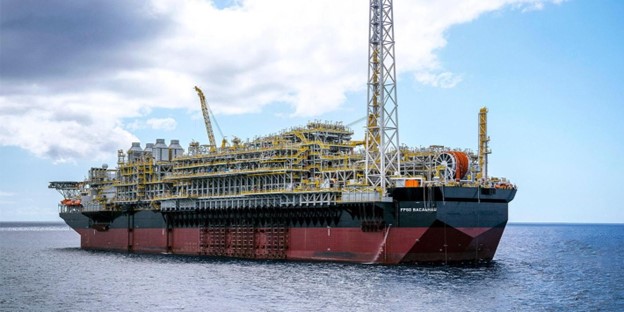(Bloomberg) – Galp Energia SGPS SA, Portugal’s biggest oil company, said it’s looking to expand exploration in frontier markets in Africa as demand for fossil fuels remains stronger than expected.
“The world has changed,” board member Nuno Bastos said Tuesday, citing the impact of the Russia-Ukraine war and widespread anxiety about energy security. “The energy transition is happening, but it will take more time than we thought. Europe still needs fossil fuels.”
Galp last year undertook an exploration campaign in Namibia, where discoveries by oil majors such as Shell Plc and TotalEnergies SE have drawn international attention. The company also holds licenses in São Tomé and Príncipe, an island nation off Africa’s west coast where it recently teamed up with Shell and Petrobras.
Galp will “continue looking for growth opportunities,” Bastos told reporters in Lisbon. “Success rates in exploration are low — typically 10% to 20% if we’re optimistic — so we must pursue multiple licenses.”
Many large oil companies are stepping up investment in exploration as the global shift to cleaner energy remains bumpy, fuel consumption holds up and production declines from existing fields. Some producers are looking to the high-risk, high-reward frontier regions that were previously underexplored.
Brazil’s Bacalhau
Galp and its partners recently began production at Brazil’s Bacalhau field, its largest project to date, according to Bastos. The deepwater deposit, where it holds a 20% stake, can pump 220,000 bpd.
“Bacalhau will allow Galp to increase its production by about 40%,” Bastos said, adding that the block may generate about $400 million a year in free cash flow for the company.
In Namibia, the firm is in “advanced talks” with several parties to sell half its 80% stake in the offshore Mopane field as it seeks to move from “discovery to production as quickly as possible,” Bastos said. “We want to have someone on board by the end of the year.”
Taken together, Brazil, Namibia and São Tomé and Príncipe present a “balanced portfolio,” he said, with “Bacalhau already producing, Namibia being appraised, and São Tomé offering long-term growth potential.”
Galp’s upstream division accounted for 63% of group earnings last year, reflecting the company’s continued reliance on oil and gas production. Bastos said cash flow from Bacalhau and future upstream projects will help finance investments in renewables, biofuels and hydrogen.
“We’re not addicted to oil — we’re experts in developing complex energy projects,” he said. “We’ll keep doing what we do well while investing in the next generation of energy.”
Pictured above: Brazil’s Bacalhau FPSO operating offshore. Image courtesy of MODEC.

